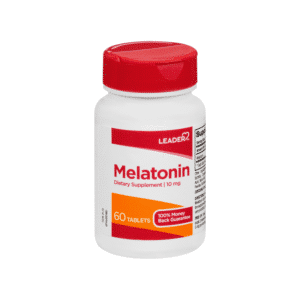Mitochondria – The Powerhouse of Life
 Mitochondria are often mentioned in health circles, but how many of us truly understand their critical role in our well-being? Let’s explore the world of mitochondria, the powerhouses of our cells, and discover how we can support them to maintain optimal health.
Mitochondria are often mentioned in health circles, but how many of us truly understand their critical role in our well-being? Let’s explore the world of mitochondria, the powerhouses of our cells, and discover how we can support them to maintain optimal health.
The Role of Mitochondria in the Body
Mitochondria are small, double-membraned structures found in nearly every cell in the body. Their main job is to produce adenosine triphosphate (ATP), the energy currency for our cells. ATP fuels everything, from muscle contractions to brain function, enabling nearly all bodily functions. But mitochondria do much more than produce energy.
Their functions include:
- Cell Signaling. Mitochondria help cells communicate and respond to stress.
- Apoptosis (programmed cell death). Mitochondria remove damaged or dysfunctional cells, maintaining balance in the body.
- Calcium Storage. Mitochondria regulate calcium levels, essential for muscle contraction and nerve function.
- Heat Production. Mitochondria also assist in thermogenesis, helping to regulate body temperature.
When mitochondria work optimally, energy production is efficient, and daily activities feel easy. However, when they become damaged, we may experience fatigue, poor metabolism, or even signs of aging.
The Mitochondria Killer: Oxidative Stress
Unfortunately, mitochondria are vulnerable. Several factors can damage them, and one of the biggest threats is oxidative stress. This occurs due to the byproducts of energy production—reactive oxygen species (ROS) or free radicals. While some ROS are necessary for cell signaling, excess free radicals can harm mitochondrial DNA (mtDNA), proteins, and membranes, impairing function.
Other major contributors to mitochondrial dysfunction include:
- Nutrient Deficiencies. Mitochondria require vitamins and minerals like B vitamins, coenzyme Q10 (CoQ10), magnesium, and omega-3 fatty acids. Without these nutrients, their efficiency drops, leading to less energy and potential cellular damage.
- Chronic Inflammation. Conditions like obesity or autoimmune diseases cause overactive immune responses that release proinflammatory cytokines, further disrupting mitochondrial function and accelerating oxidative stress. Environmental Toxins. Pollutants, such as heavy metals (mercury, lead), pesticides, and industrial chemicals, block the enzymes mitochondria need to produce energy. These toxins also increase oxidative stress, damaging mitochondria and reducing efficiency.
- Sedentary Lifestyle. Physical inactivity lowers mitochondrial production, leading to decreased energy output, poor metabolism, increased fat, and fatigue. Poor Sleep and Stress. Elevated cortisol levels from stress and sleep deprivation impair mitochondrial function, increasing oxidative stress and inflammation, both of which speed up mitochondrial decline.
Mitochondrial Makeover: How to Revive and Support Cellular Health
Eat a Mitochondria-Supporting Diet. Proper nutrition is crucial for mitochondrial health.
- Healthy Fats. Avocados, nuts, seeds, and fatty fish provide essential fatty acids for mitochondrial membranes.
- Antioxidants. Berries, leafy greens, and turmeric help reduce oxidative stress by neutralizing free radicals.
- B Vitamins. Found in eggs, meat, and legumes, B vitamins are essential for energy production.
- CoQ10. This coenzyme, found in organ meats and fatty fish, helps mitochondria produce ATP efficiently.
- Exercise Regularly. Exercise, especially aerobic activity and strength training, boosts mitochondrial production. It also reduces oxidative stress and increases mitochondrial density, improving energy metabolism and supporting long-term energy levels.
- Consider Intermittent Fasting or Ketosis. Fasting and a ketogenic diet (low-carb, high-fat) can stimulate mitophagy, the process of cleaning out damaged mitochondria and encouraging the growth of healthier ones. While effective, these approaches may not be suitable for everyone, so it’s important to consult a healthcare provider before trying them.
- Reduce Environmental Toxins. Minimizing exposure to harmful chemicals can greatly reduce mitochondrial stress. Opt for organic foods, filter your drinking water, and choose natural cleaning and personal care products to limit toxins that impact mitochondrial health.
- Prioritize Sleep and Stress Management. Quality sleep is essential for mitochondrial repair. Relaxation techniques like meditation, deep breathing, or spending time in nature can help lower cortisol levels and reduce stress-related mitochondrial damage. Proper sleep allows the body to rejuvenate so that mitochondria can recover and function more efficiently.
Use Targeted Supplements. Certain supplements can give your mitochondria a boost.
- CoQ10 supports ATP production and reduces oxidative stress.
- Alpha-Lipoic Acid helps regenerate antioxidants and improves mitochondrial energy metabolism.
-
Magnesium supports ATP production and muscle function.
-
PQQ stimulates the formation of new mitochondria within cells.
-
Methylene Blue protects mitochondrial DNA and reduces oxidative stress.
-
Resveratrol enhances mitochondrial function and promotes the formation of new mitochondria.
-
NAD+ is involved in mitochondrial energy production and DNA repair.
The Magic of Your Mitochondria
RELATED ARTICLES
Let’s Talk About Constipation (Yes, Really)
In my pharmacy, I frequently sit down with patients for all kinds of consultations—whether it’s...
Health IS A Journey, Not a Destination
By Koby Taylor, PharmD My journey toward better health has been anything but linear. It’s been a...
RELATED PRODUCTS
Click any product below for details and to visit our online store.
















